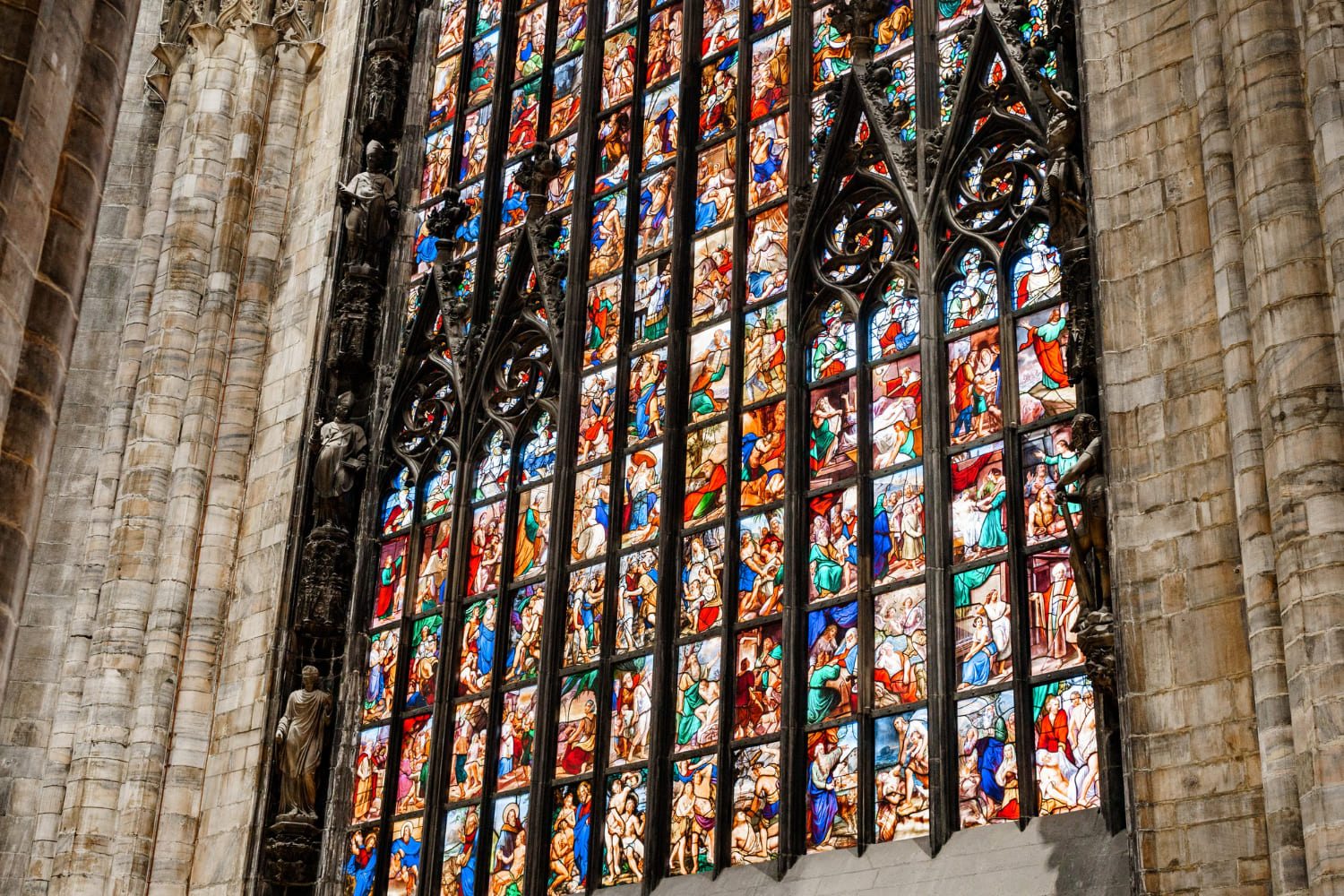Uruguay is a small country in South America that is known for its progressive policies and high standard of living.
One aspect of Uruguayan society that is often overlooked is its religious landscape, which is diverse and complex.
While the majority of Uruguayans identify as Catholic, there are many other religions and belief systems represented in the country as well.

According to recent statistics, nearly 40 percent of Uruguayans have no religious affiliation, while another 8.8 percent define themselves as “spiritual but not religious.”
Among those who do identify with a religion, Catholicism is by far the most popular, with over 47 percent of the population identifying as Catholic.
Other Christian denominations, such as non-Catholic Christians, nondenominational Christians, and Jehovah’s Witnesses, also have a significant presence in Uruguay.
Additionally, there are small communities of Jews, Muslims, Buddhists, and followers of indigenous religions in the country.
- Overview of Religions in Uruguay
- Dominant Religious Beliefs
- Historical Development of Religion
- Demographics and Statistics
- Census Data on Religious Affiliation
- Trends in Religious Identification
- Influence of Religion on Society
- Religion and Politics
- Religious Celebrations and Public Life
- Interfaith Relations and Dialogue
- Ecumenical Movements
- Interfaith Initiatives
Overview of Religions in Uruguay

Dominant Religious Beliefs
Uruguay is a predominantly secular country, with no official state religion.
Approximately 44.5% of the population is non-religious, while 57% of the population identifies as Christian (42% Catholic and 15% Protestant), and 6% identify as other.
Catholicism was the dominant religion in Uruguay until the early 20th century. However, the number of Catholic adherents has declined noticeably since 1900.
The country has witnessed a significant increase in the number of Protestants in recent years. Other religions practiced in Uruguay include Judaism, Islam, and Buddhism, among others.
Historical Development of Religion
The Catholic Church played a significant role in the colonization of Uruguay by Spain and Portugal during the 16th and 17th centuries.
The Church was the primary institution that provided education and social services to the population.
However, the Church’s influence declined during the 19th century, and the country’s constitution was amended to separate Church and State in 1916.
Uruguay’s constitution guarantees freedom of religion to all inhabitants. The country’s statutory setting is categorized as a prototypical secular state, together with Mexico and France, and Uruguay’s government is committed to maintaining a secular society.
Nevertheless, some peculiarities of Uruguay’s statutory setting go beyond the typical secular state, as the country has a Ministry of Religion and a National Institute of Human Rights and Defenders of the People that work to promote religious freedom and tolerance.
In conclusion, Uruguay is a secular country with a diverse religious landscape.
While Christianity remains the dominant religion, the country’s constitution guarantees freedom of religion to all inhabitants, and the government is committed to maintaining a secular society.
Demographics and Statistics
Census Data on Religious Affiliation
According to a survey carried out between October and December of 2020, nearly 40% of Uruguayan respondents said they had no religious affiliation, whereas another 8.8% defined themselves as agnostic or atheist.
Christianity is the largest religion in Uruguay, with Catholics having the most adherents, accounting for 47.1% of the population, as of 2006.
Non-Catholic Christians make up 11.1%, nondenominational 23.2%, Jewish 0.3%, and other religions make up 1.1% (2006 est.) of the population.
Trends in Religious Identification
The trend of decreasing religious affiliation has been observed in Uruguay for several years.
The separation of church and state since 1916 has led to a decline in religious influence in the country.
As per the World Population Review in 2019, the fertility rate in Uruguay is 1.7 births per woman, which is below the replacement level of 2.1.
This low fertility rate has been attributed to the country’s high level of contraceptive use and the increasing number of women entering the workforce.
In conclusion, the census data on religious affiliation in Uruguay shows a significant percentage of the population is not affiliated with any religion, with Christianity being the largest religion.
The trend of decreasing religious affiliation has been observed in Uruguay for several years.
Influence of Religion on Society
Religion and Politics
Uruguay is a secular state, and there is no official state religion. The constitution guarantees freedom of religion, and the government respects this right in practice.
However, religion continues to play a significant role in Uruguayan society, and religious leaders often have an influential voice in public discourse.
Religious groups in Uruguay are active in political and social issues, and many religious leaders are involved in political parties and movements.
Some religious groups, such as the Catholic Church, have significant influence on public policy, particularly in areas such as education and healthcare.
Religious Celebrations and Public Life
Religious celebrations are an important part of Uruguayan culture, and many public holidays are based on religious events.
For example, Christmas and Easter are widely celebrated, and many Uruguayan families attend church services during these holidays.
Religious symbols and traditions are also visible in public life.
For example, many government buildings and public spaces display religious symbols, such as crosses and statues of religious figures.
However, the government also recognizes the importance of secularism and strives to maintain a balance between religious and secular values.
In conclusion, religion continues to play an important role in Uruguayan society, despite the country’s secular status.
While religious groups are active in political and social issues, the government maintains a commitment to freedom of religion and secularism.
Interfaith Relations and Dialogue
Ecumenical Movements
Uruguay has a long tradition of ecumenical movements that promote interfaith dialogue and cooperation.
The Catholic Church has been a driving force behind many of these initiatives, but other Christian denominations and non-Christian religions have also participated.
One example is the Uruguayan Council of Christian Churches, which brings together various Protestant denominations to promote unity and cooperation.
Interfaith Initiatives
In recent years, there has been an increase in interfaith initiatives in Uruguay. These initiatives aim to promote understanding and respect between different religions and to foster cooperation on issues of common concern.
One such initiative is the Interfaith Forum of Uruguay, which brings together representatives from various religious communities to discuss issues such as peace, social justice, and the environment.
The Uruguayan government has also played a role in promoting interfaith dialogue and understanding.
For example, the government has organized conferences and workshops on interfaith issues and has provided funding for interfaith initiatives.
In addition, the government has worked to promote religious freedom and tolerance, and has taken steps to prevent discrimination against religious minorities.
Overall, interfaith relations in Uruguay are characterized by a spirit of cooperation and mutual respect.
While there may be some differences between different religious communities, there is a shared commitment to promoting peace, justice, and social harmony.







